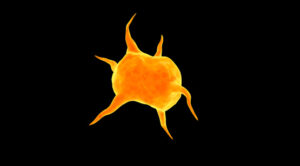Alloimmunization to human leukocyte antigens (HLA) leads to platelet refractoriness, defined as decreased post-transfusion platelet count increments (PCIs), and is associated with poor patient outcomes. HLA alloimmunization is also clinically challenging to manage and often requires a donor pool of at least 10,000 to find a HLA-antigen-matched or compatible donor. A suitable match often cannot be found, especially for patients with alloimmunization to multiple or rare HLA antigens. Other strategies are under investigation, including matching at the epitope level based on linear or discontinuous regions of the HLA proteins. HLA epitopes are verified with HLA antibodies results and matched with the HLAMatchmaker program. A randomized crossover clinical trial was designed to determine if HLA epitope matched (HEM) platelets are noninferior to HLA standard matched (HSM) platelets. Forty-nine alloimmunized, platelet-refractory, thrombocytopenic patients received up to eight one-unit platelet transfusions of HSM and HEM matched units in random order (up to 4 each), and HEM matched HLA platelets were found to be noninferior to HSM platelets. Over the course of the study, 107 HEM-matched and 112 HSM-matched transfusions were administered, and unadjusted mean PCIs were similar 23.9 vs. 23.5, respectively. In addition, no differences were found with respect to platelet counts, transfusion requirements, and bleeding events. HEM matched platelets are cheaper, require a smaller donor pool, and should be studied further to validate these results.
References:

